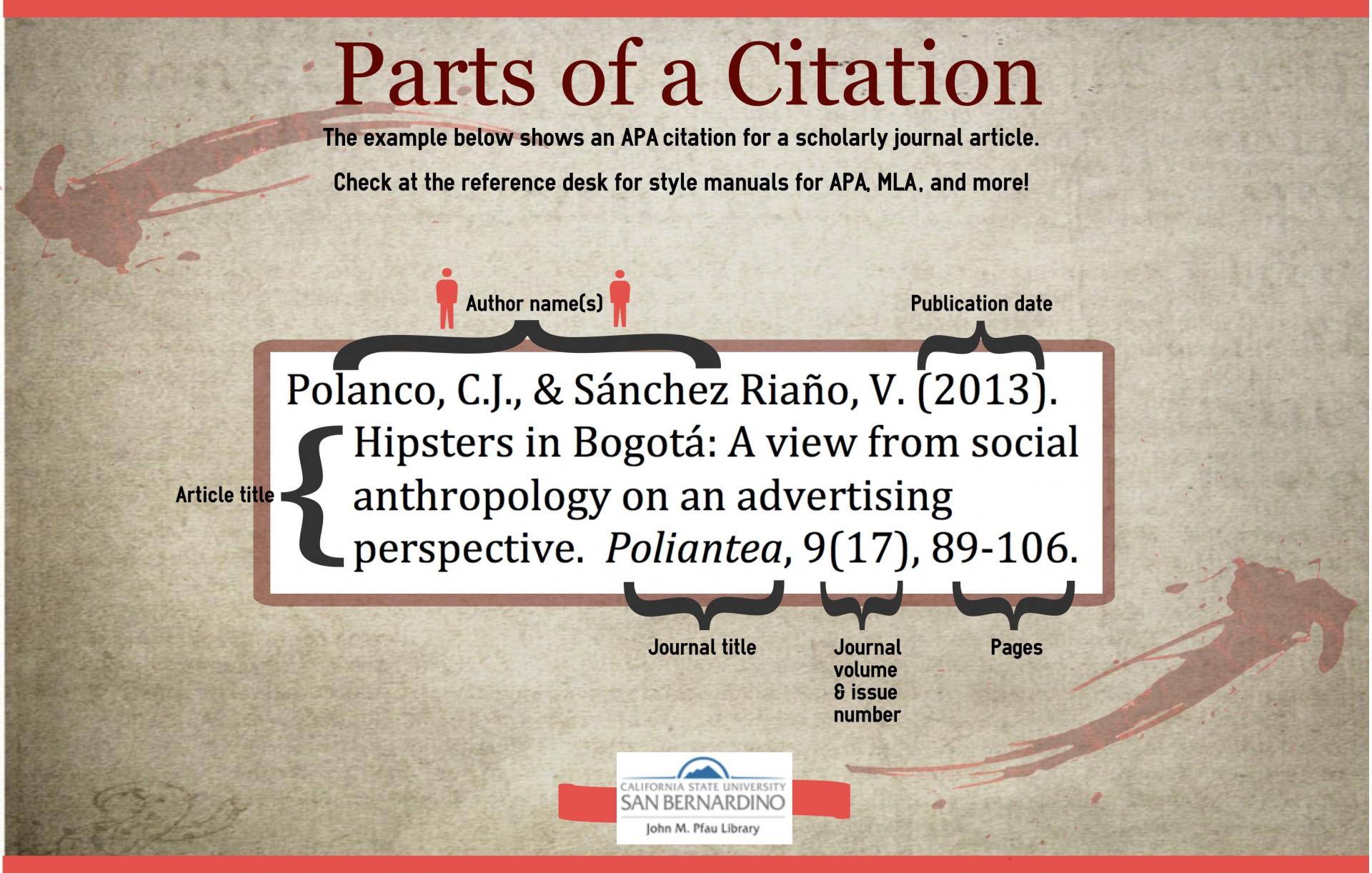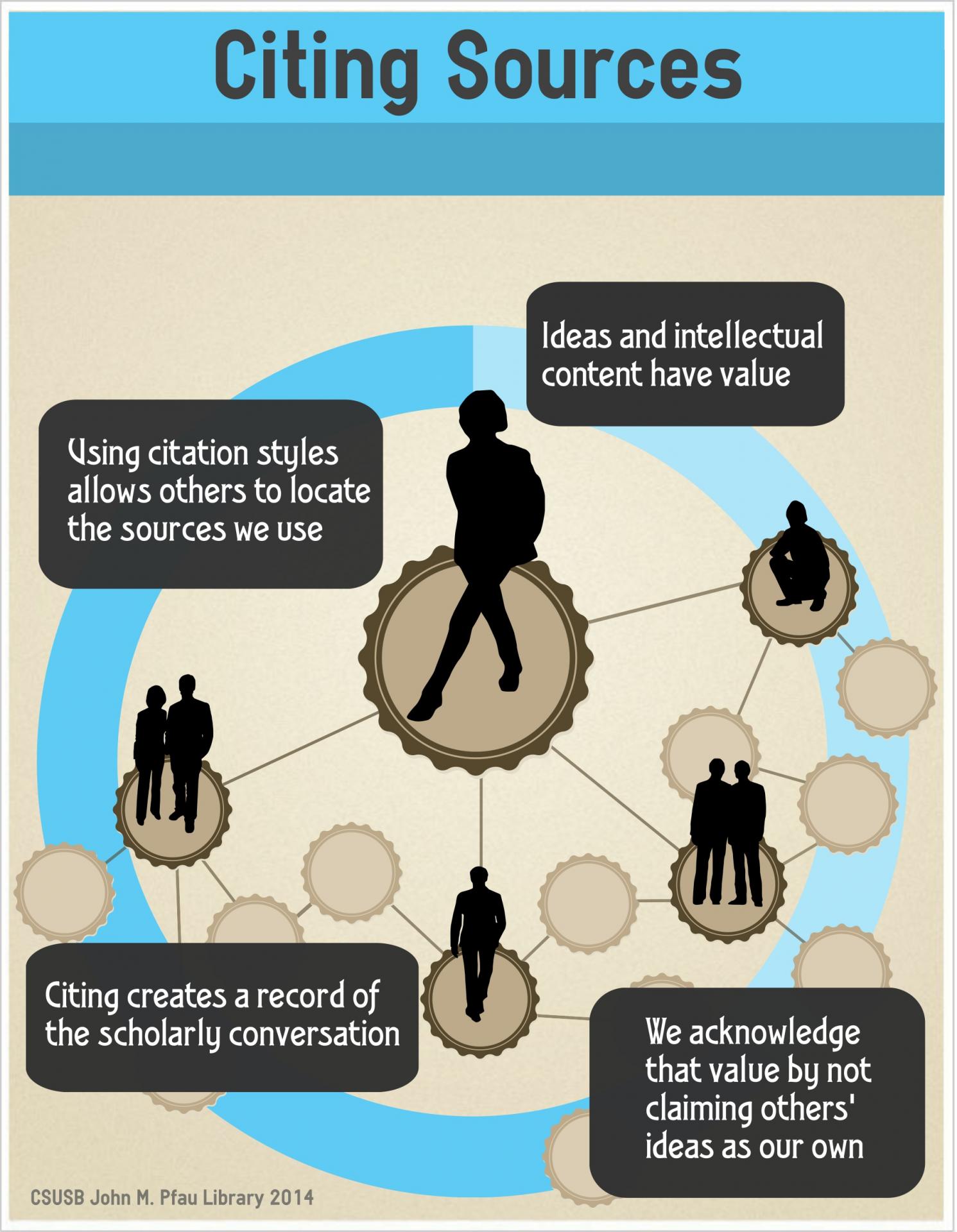Students recognize the essential value of attribution in order to engage ethically and legally in scholarly conversations.

Discussion Prompts
- Who we choose to cite in our work has political and social implications. Read the Citation Practices Challenge, followed by The Racial Politics of Citation and Making Feminist Points. In this post, Ahmed describes citation as a “reproductive technology, a way of reproducing the world around certain bodies.” What does she mean by this? Encourage students to interrogate the reference lists in articles that are considered essential/important to your field or discipline.
- How do we decide who gets credit for major ideas and discoveries throughout history? What is the Matilda Effect, and can you name examples of this phenomenon in history? What about in recent history? Visit The Matilda Project and watch their video on gender bias. Do you think the Matilda Effect is exclusive to researchers in the science fields? Ask students to consider what they can do to combat gender bias in research in their assignments and in their careers as students and beyond.
Class Activities
- In order to understand that attribution allows us to trace ideas to their origins, ask for four student volunteers. Each will read a short scenario that represents one of the following points of view: Charles Darwin, a Social Darwinist, a eugenicist, and a CSUSB student. Prompt students to write a response reflecting on how the CSUSB student would locate Darwin’s original ideas. What if the student wanted to trace how Darwin’s ideas have been debated and used over time? Why is having a historical record of the way ideas have been used or debated a good thing?
- After reading a scholarly article or book, have students identify one of the author’s claims or arguments. Ask that students locate at least three in-text citations the author uses to support his or her claim. Students first follow the in-text citations to the reference or works cited list, then they locate these three or more sources (see our databases by subject list or Find a Book in the Library Catalog). In order to understand that scholarship is akin to a conversation among thinkers, students create a dialog that puts these sources in conversation with one another. Include claims, arguments, agreements, etc. This could be an annotated bibliography, literature review, or even a comic strip. Encourage students to conduct background research on these scholars and give them some personality!
Did You Know?
- In academia, the most prominent/influential voices in a discipline or field are typically cited more frequently than others. If students have trouble making the connection between number of times a source is cited and its influence, remind them that we engage in similar practices when we use social media. Typically, the more “shares,” the broader the influence. Be sure to mention, however, that just because an author cites a source, this doesn’t necessarily mean she agrees with it.
- Different citation styles reflect different disciplinary conventions. For more, see Citation Conventions (Bone & Nunes, 2009)
- Many of the library’s databases offer citation helpers that will automatically format an article’s information into common citation formats. WARNING: You are NOT safe simply copying these computer-generated citations, because they may contain bad data. You remain responsible for checking the citation for correct formatting!
- The Pfau Library has copies of the most recent manuals for APA style, MLA style, and Chicago style.
Pfau Library Videos
Related Resources
LibGuide: Inclusive Citation Practice
CSUSB Policy: Academic Dishonesty/Plagiarism
CSUSB Syllabi Plagiarism Statement and More: Syllabus Preparation
LibGuide: Helping Students Avoid Plagiarism
LibGuide: Plagiarism and the Research Paper
LibGuides: Citing and Writing
LibGuide: Zotero (we also offer Zotero workshops – to register, see our workshop calendar)
How-To: Zotero video tutorials
APA Citations Guide (printable PDF)
APA In-Text Citations (printable PDF)
MLA Citation Handout (printable PDF)
Citation Builder – North Carolina State University Libraries
Citation: A (Very) Brief Introduction – North Carolina State University Libraries (CC-NC-SA 3.0)

